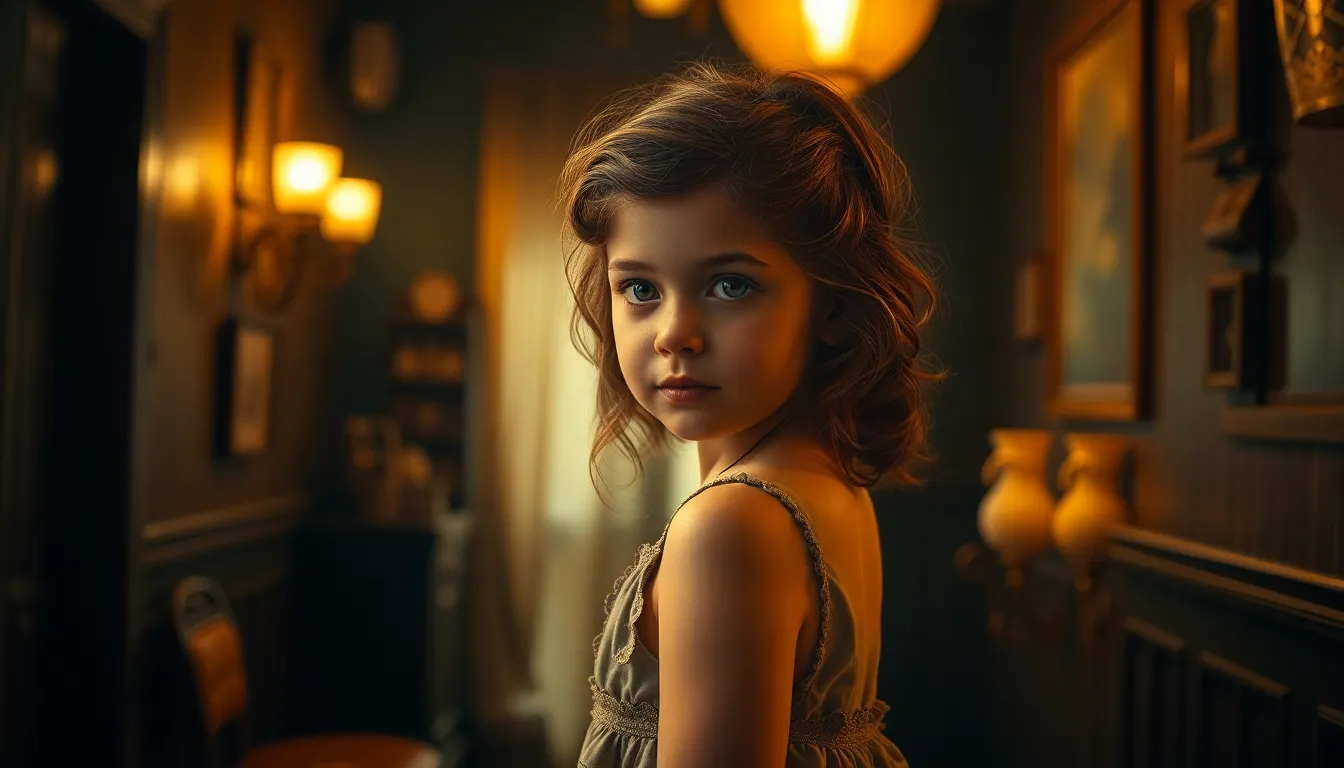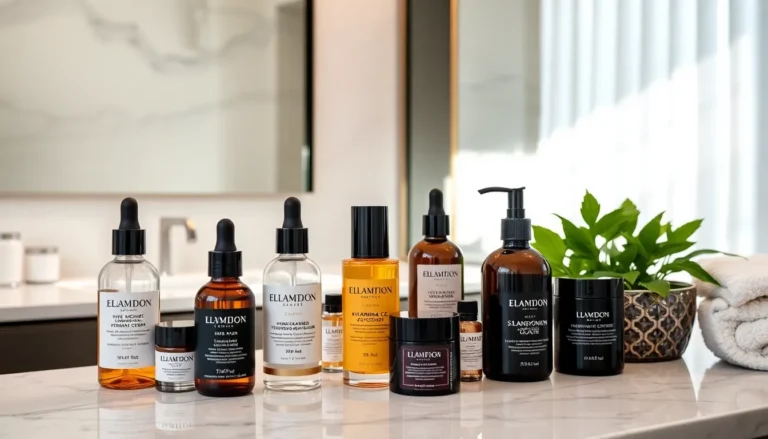Table of Contents
ToggleBrooke Shields’ role in the controversial film “Pretty Baby” sparked intense debate and fascination when it was released in 1978. As a young actress, she portrayed a child living in a New Orleans brothel, a performance that raised questions about the boundaries of art and exploitation. The film’s depiction of nudity and innocence has since become a significant talking point in discussions about child actors and the responsibilities of filmmakers.
Decades later, “Pretty Baby” remains a pivotal moment in Shields’ career and in cinematic history. It challenged societal norms and ignited conversations about the portrayal of youth in media. This article delves into the implications of Shields’ performance, exploring how it shaped her career and influenced perceptions of child actors in Hollywood.
Overview of Brooke Shields’ Career
Brooke Shields’ career spans several decades, marked by her work as an actress and model. She gained prominence at a young age through her role in “Pretty Baby,” which established her as a significant talent in Hollywood. Following this, she starred in movies such as “The Blue Lagoon” (1980) and “Endless Love” (1981), both of which showcased her on-screen presence.
Shields transitioned successfully into television, with notable roles in series like “Suddenly Susan,” which aired from 1996 to 2000. This sitcom garnered critical acclaim and solidified her status as a versatile performer. Additionally, she has appeared in various dramas and comedies, showcasing her range as an actress.
As a model, Shields appeared on the covers of prominent magazines, including Vogue and Harper’s Bazaar, during the 1980s. Her modeling career added to her public image, further cementing her influence in popular culture.
Shields has also engaged in advocacy work, focusing on issues such as mental health and body image. She frequently discusses her experiences, aiming to empower others facing similar challenges. This involvement demonstrates her commitment to important social causes beyond her entertainment career.
Over her career, Shields has achieved significant accolades, including a star on the Hollywood Walk of Fame in 2007, marking her contributions to the arts and media industry.
Pretty Baby: Film Background

“Pretty Baby,” directed by Louis Malle, explores complex themes surrounding childhood and exploitation set against the backdrop of a New Orleans brothel. Released in 1978, the film gained notoriety for its daring portrayal of sensitive subjects through the lens of a child actor.
Plot Summary
The storyline centers on Violet, played by Brooke Shields, who lives in a brothel during the early 20th century. Violet navigates her childhood within this environment, facing the intricacies of innocence and maturity. The narrative follows her relationships, particularly with her mother and a photographer, as they illustrate her struggle for agency amidst societal constraints. The film’s plot examines the contrast between youthful innocence and adult realities, sparking discussions on moral boundaries.
Controversies Surrounding the Film
“Pretty Baby” triggered widespread controversy due to its portrayal of nudity and sexual themes with a child actor. Critics raised questions about artistic integrity versus exploitation, prompting debates within both the film industry and society. The film’s release coincided with heightened awareness of child safety, further complicating its reception. Many argued that it blurred the lines between art and potential harm, catalyzing crucial discussions about child actors and their representation on screen. Despite—or perhaps because of—these controversies, the film remains a pivotal case study in dialogues about the ethics of depicting youth in cinema.
Brooke Shields’ Role in Pretty Baby
Brooke Shields’ performance in “Pretty Baby” marked a pivotal moment in her career and sparked significant cultural discussions. This role established her as a controversial child actress within the film industry.
Character Analysis
Shields portrays Violet, a young girl raised in a New Orleans brothel during the early 20th century. Violet’s character is characterized by innocence and vulnerability, leading to complex dynamics with her mother and a photographer. The narrative emphasizes her quest for independence within an oppressive environment. Shields effectively conveys this struggle through her nuanced performance, which blends childlike curiosity with emerging awareness of harsh realities. The film’s use of sensitive themes, especially nudity, highlights the stark contrast between childhood innocence and adult exploitation, making Violet’s journey both compelling and unsettling.
Impact on Shields’ Career
The role of Violet in “Pretty Baby” profoundly influenced Brooke Shields’ career trajectory. Following the film’s release, Shields encountered both acclaim and scrutiny. Critics and audiences debated the ethical implications of her performance, which brought her significant media attention. The controversy positioned her in a challenging spotlight, affecting her public image. Despite this, she successfully transitioned into adult roles, including notable performances in “The Blue Lagoon” and “Endless Love.” Shields leveraged her early notoriety, ultimately establishing a long-lasting career in film and television, complemented by her modeling achievements. The discussions sparked by “Pretty Baby” also positioned her as a voice in conversations about child actors and their rights within the industry.
The Nude Scenes: Context and Interpretation
The nude scenes in “Pretty Baby” prompted significant discourse around artistic expression and the potential for exploitation. These scenes not only challenged societal norms but also highlighted the complexities of portraying childhood in cinema.
Artistic Expression vs. Exploitation
Artistic intentions behind the film remain controversial. Director Louis Malle aimed to address complex themes such as innocence, sexual awakening, and societal hypocrisy. However, critics argue these intentions blur lines, risking the exploitation of a young actress. Shields, embodying Violet, engages viewers in her character’s journey, yet raises ethical questions about depicting youth in such vulnerable situations. Instances of nudity reveal transformative experiences but also ignite debates on whether such portrayals serve an artistic purpose or merely exploit innocence for shock value.
Public Reactions and Criticism
Public reactions to Shields’ performance in the nude scenes were polarized. Supporters emphasized her talent and the film’s artistic merit, viewing it as a bold commentary on society’s treatment of children. Conversely, many condemned the film for its provocative content, labeling it inappropriate. Critics underscored the discomfort with exposing a young actress to mature themes, often questioning the morality of filmmakers exploiting child actors for narrative depth. Discussions surrounding these reactions continue to shape the discourse on child performers in Hollywood, influencing industry practices and public perception.
Legacy of Pretty Baby
“Pretty Baby” has left an indelible mark on the film industry, prompting significant discussions about ethics, representation, and the complexities of childhood in cinema.
Influence on Future Cinema
“Pretty Baby” influenced future filmmakers by pushing boundaries regarding the portrayal of youth on screen. The film showcased the contentious nature of depicting nudity and sensitive themes, sparking debates that resonate in contemporary cinema. Subsequent works often reference its bold artistic choices, revealing ongoing challenges around child representation and the expectations placed on young actors. Directors and producers now approach narratives involving children with greater caution, recognizing the need for ethical considerations and protections for young performers.
Brooke Shields’ Reflections
Brooke Shields’ reflections on “Pretty Baby” reveal her awareness of the film’s impact. She acknowledges the mixed reactions to her performance, noting its role in highlighting societal issues surrounding childhood and exploitation. Shields articulates a nuanced understanding of her early career, balancing pride in her artistic contribution with acknowledgment of the controversies it generated. In interviews, she emphasizes the importance of her role in generating dialogue around the responsibilities of filmmakers regarding child actors. Shields continues to advocate for a more respectful and protective industry environment for young performers, using her experiences to inform her ongoing activism.
Brooke Shields’ role in “Pretty Baby” remains a pivotal moment in cinematic history. The film not only challenged societal norms but also sparked essential conversations about the portrayal of youth in media. Shields’ performance continues to resonate as a symbol of the complexities surrounding childhood and exploitation.
Her journey from a controversial child actress to a respected advocate highlights the ongoing need for ethical considerations in the entertainment industry. As discussions about representation and the rights of child performers evolve, Shields’ experiences serve as a crucial reminder of the responsibilities filmmakers hold. The legacy of “Pretty Baby” endures, influencing how future generations approach sensitive themes in cinema.




